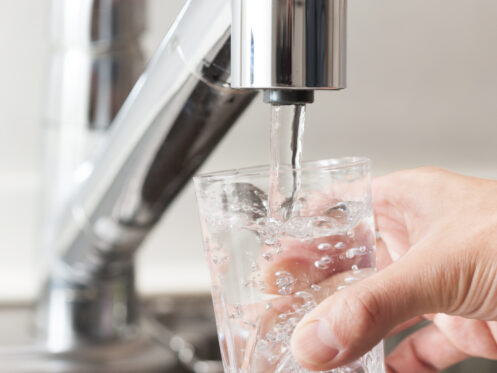Water is the essence of life. It hydrates us, cleanses us, and sustains the world around us. Therefore, if the water you are using is unclean or polluted in any manner, the impact it can have on your health, as well as on the well-being of those around you, can be profound and immediate. This is why water quality matters and why having a proper filtration system in place is essential.
Water Quality
The phrase “water quality” describes the physical, chemical, and biological properties of water, primarily concerning its suitability for a particular use. For example, if you intend to drink water from your tap, you would want it to be free of harmful chemicals, bacteria, and other impurities. On the other hand, if you are using water for agricultural purposes, you would need it to be free from pollutants that can harm plants and aquatic life.
The Effects of Poor Water Quality
Health Issues
The first common consequence of consuming contaminated water is gastrointestinal problems, which manifest as stomach cramps, diarrhea, nausea, and vomiting. Long-term exposure can lead to chronic diseases like cancer, neurological disorders, and reproductive problems.
Financial Impact
Health-related issues caused by untreated water need medical attention, which can result in a significant financial burden for individuals and communities. In addition to treatment costs, lost productivity due to illness and hospitalization also add to the financial strain.
Your appliances and plumbing system can also suffer from poor water quality. Minerals and sediment build-up can cause damage and reduce the lifespan of dishwashers, washing machines, and water heaters. Clogged pipes are quite costly to repair or replace and can also lead to water damage in your home.
Environmental Impact
When wastewater containing harmful substances is released into bodies of water, it can harm aquatic life and pollute ecosystems. This creates a ripple effect as animals rely on these resources for survival, and the pollutants can also make their way into your food chain.
The Role of Water Filtration Systems
Many homeowners and health-conscious individuals turn to water filtration systems to combat the aforementioned issues. These systems come in various forms, including activated carbon filters, reverse osmosis units, and ultraviolet purification systems, each with their specific functions and benefits.
Activated Carbon Filters
Activated carbon filters are made of coal granules, coconut shells, and other materials rich in carbon. They work by trapping impurities in the carbon pores, effectively removing contaminants such as chlorine, volatile organic compounds (VOCs), and sediment from water.
This process only takes a few minutes as water passes through the filter, making it a convenient and efficient option for home use. To ensure optimal efficiency, activated carbon filters should be replaced regularly according to the manufacturer’s instructions.
Reverse Osmosis Units
Reverse osmosis (RO) water filtration systems use a semipermeable membrane to remove impurities from water. Water is forced through this membrane, leaving behind larger particles and substances such as chlorine, sediments, VOCs, and fluoride.
RO systems are ideal for removing dissolved minerals because of the reverse osmosis process. When let’s say, salt particles remain on the left side of the membrane, they will create a concentration gradient that will keep and also draw other minerals that may have passed to the left side. So, only clean water will flow through to your home.
Ultraviolet Purification Systems
UV purification systems use ultraviolet light to destroy harmful microorganisms like bacteria and viruses. This type of filtration system is often used in conjunction with other methods, such as activated carbon filters or reverse osmosis units, to provide a multi-stage filtration process.
UV light of around 254 nm wavelength can penetrate the cells of microorganisms and alter their DNA, effectively killing them and preventing reproduction. This method is chemical-free and does not alter the taste or smell of water, making it a popular option for both residential and commercial use.
Choosing the Right Filtration System
Selecting a water filtration system depends on the specific needs of your household, the contaminants present in your water, and your overall budget. Consider factors like the system’s filtration rate, maintenance requirements, and installation costs.
Consult With Us
If you live around Brighton, CO, call TYCO Plumbing today to learn more about how to purify your water for optimal health and safety. Our team of experts can conduct a comprehensive water quality test and recommend the best filtration system for your specific needs. On top of that, we do sewer repair and plumbing remodeling, install service, and repair water heaters, softeners, sump pumps, and more. We are a one-stop shop for all your water and plumbing needs.



